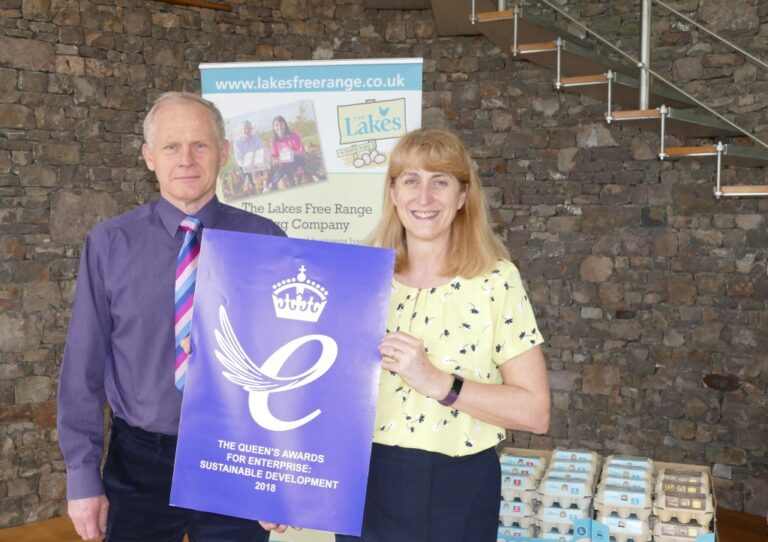The NFU has published a new series of case studies featuring farmers who are reducing their carbon emissions, as part of a push to promote the environmental work being done by farmers across the country.
Several poultry farmers are included in the publication, including Charles Bourns, Phil Crawley and David & Helen Brass.
Charles Bourns, a broiler grower from Gloucestershire, details how he and his son James made the decision to refurbish their poultry sheds with double glazing, insulation and LED lighting, leading to a 25% reduction in electricity bills.
“We’ve had to adapt to the tech in the new sheds,” said Bourns. “Next up we’d like to install biomass boilers using woodchip and/or poultry litter, as well as solar PV but the policies have to be right. Accessing finance for the next generation is still going to be a challenge.”
Free-range egg producers David and Helen Brass share their story of how they planted 214,000 trees on their land, including rowan, oak and maple to improve biodiversity on the farm and lead to a better environment for the hens, which in turn improves productivity.
“We’ve found that tree density and placement are important – it may look random but it’s essential that planting is planned. It’s proved a win-win for better egg production and biodiversity. Without trees the farm would be a poorer place and it makes us feel like we’re making a difference.”
The booklet, titled ‘Doing our bit for Net Zero’, includes case studies from every sector and from farms across England and Wales, and covers each of the three pillars outlined in the NFU’s net zero plan: productivity, carbon storage and renewables and bioenergy.
Some of the work outlined in the booklet includes:
- Improving genetics and animal health
- Increasing soil health and fertility
- Undertaking precise tree planting and woodland management
- Investing in new technologies to increase productivity
- Creating biomass and renewable energy to power the farm and local areas.
The 26 case studies aim to inspire farmers to start their net zero journey ahead of the 26th meeting of the United Nations’ Climate Change Conference (COP26), which will take place in Glasgow in November next year.


